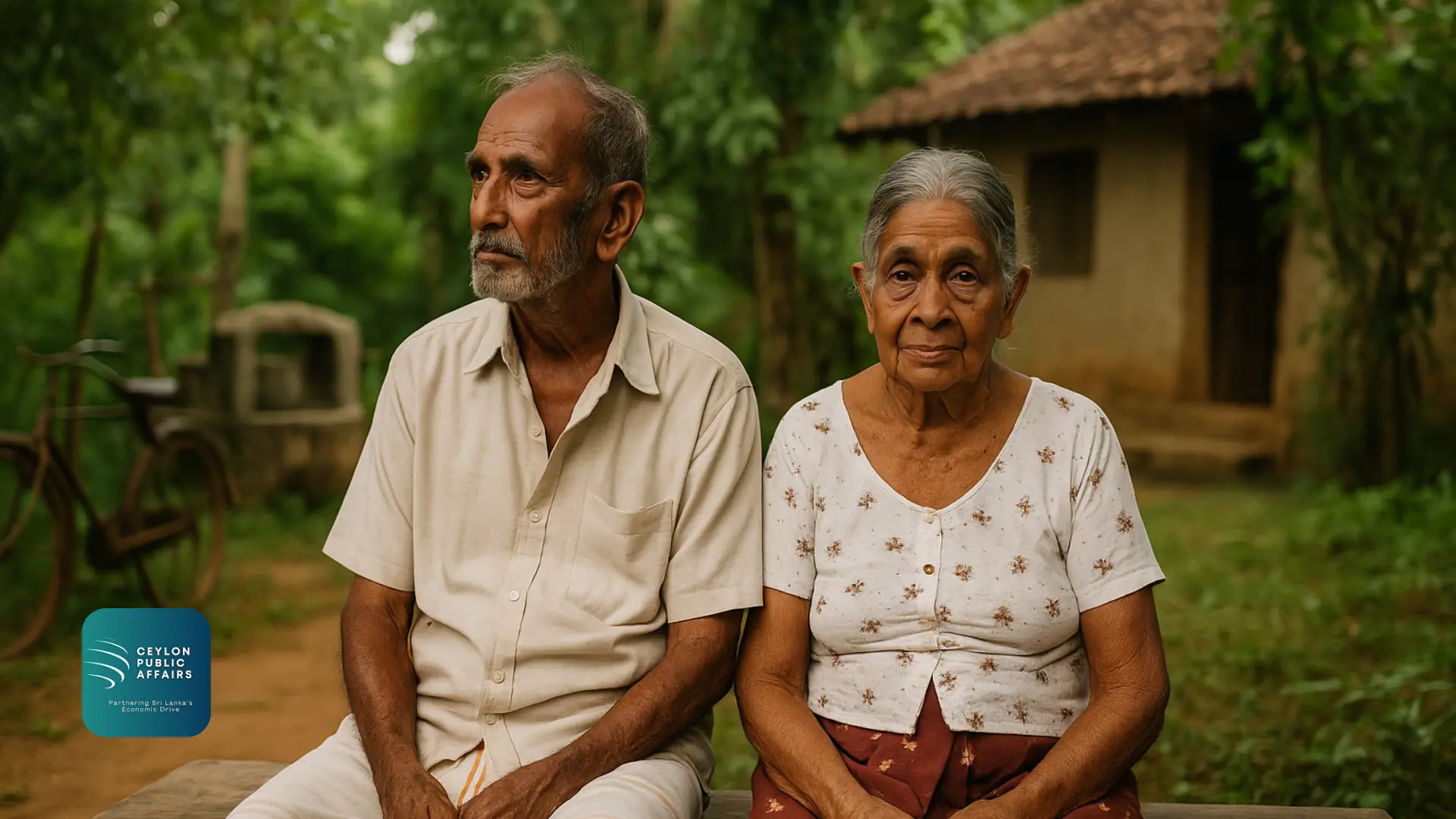Introduction: The Demographic Shift No One’s Talking About
While much of Sri Lanka’s national conversation revolves around economic recovery, youth migration, and political instability, a quiet crisis is unfolding in the background, one that could redefine the country’s future: the rapid ageing of its population.
As of 2025, over 16% of Sri Lanka’s population is aged 60 or above, a number expected to rise to 25% by 2045. This shift places Sri Lanka among the fastest-ageing countries in Asia. But unlike countries like Japan or South Korea, Sri Lanka is ageing before it has become rich. This mismatch between demographic change and economic readiness is fuelling a complex web of social issues.
The Numbers Don’t Lie: What the Data Tells Us
According to the Department of Census and Statistics:
- The dependency ratio is rising, with fewer working-age people supporting more elderly citizens.
- Life expectancy continues to increase (currently 77.3 years on average).
- Fertility rates have dropped below replacement level, compounding the problem.
What this means is simple: Sri Lanka will soon have more grandparents than grandchildren, and that changes everything, from the economy to healthcare to family life.
The Economic Consequences of an Ageing Nation
- Labour Shortages
With more people exiting the workforce due to age, and more young professionals migrating abroad, Sri Lanka is on the brink of a serious labour crisis. Critical industries like healthcare, education, and agriculture are already feeling the strain. - Pensions and Public Spending
An ageing population means higher public spending on pensions, welfare, and healthcare. But with a shrinking tax base, the burden on the state is becoming unsustainable. Current pension schemes are already under pressure, and reforms are politically sensitive. - Healthcare System Overload
Older adults typically need more frequent and specialised medical care. Sri Lanka’s public healthcare system, already strained, must now adapt to rising demand for geriatric care, chronic disease management, and long-term support.
The Social Costs: Loneliness, Caregiving, and Inequality
- Loneliness and Social Isolation
Many elderly people, especially in rural areas, are left to fend for themselves as younger generations move away, both geographically and emotionally. Without proper community care systems, many face emotional neglect and depression. - The Burden on Women
In most Sri Lankan households, caregiving falls disproportionately on women, especially daughters and daughters-in-law. This unpaid care work often comes at the cost of their own careers, education, and mental health. - Urban vs Rural Divide
Access to elderly care, financial security, and healthcare services varies widely depending on location. Urban elderly may have better services, while rural elders often lack basic support, creating new layers of social inequality.
Cultural Transitions: From Respect to Neglect?
Traditionally, Sri Lankan culture places strong emphasis on respecting elders and keeping family units close. But with rising costs of living, urban migration, and shifting values, these norms are weakening.
Multigenerational living is declining, and institutional elder care, once stigmatised, is slowly becoming normalised. This signals a deeper cultural transition where ageing is no longer seen as a shared responsibility, but a private burden.
Policy Gaps and What Needs to Be Done
Despite clear warning signs, Sri Lanka still lacks a comprehensive national ageing policy. A few piecemeal measures exist, such as senior citizen ID cards and discounted transport, but these are not enough.
Key policy priorities should include:
- Strengthening community-based elderly care programmes
- Training more geriatric healthcare professionals
- Pension reform and financial literacy for retirement planning
- Creating job opportunities for healthy, active older adults
- Incentivising private sector involvement in elder care
It is not just about charity or social responsibility. If managed well, Sri Lanka’s elderly population can become a productive, experienced, and valuable part of society.
Opportunities Within the Crisis
- The Silver Economy
There is a growing market for services tailored to the elderly, from wellness programmes to assistive tech and senior travel. Tapping into this “silver economy” could create new business and job opportunities. - Reimagining Retirement
With many seniors still healthy and capable, flexible and part-time work can keep them engaged while easing pressure on the pension system. - Intergenerational Learning
Retired professionals can play a crucial role in mentoring, teaching, and transferring skills to younger generations, if systems are designed to facilitate that exchange.
Conclusion: Time to Act
Sri Lanka’s ageing population is not a future issue; it is a now issue. Ignoring it will not make it go away; it’ll just make the social and economic consequences harder to manage later. The country must confront this shift with bold policies, inclusive planning, and a cultural reawakening about how we treat our elders.
Check for more updates – https://ceylonpublicaffairs.com/













